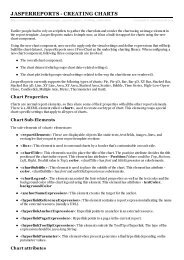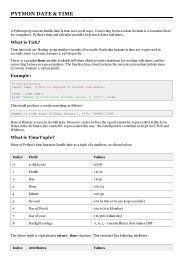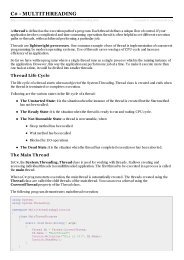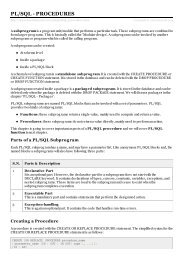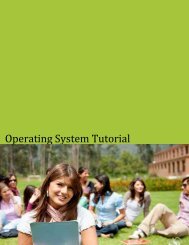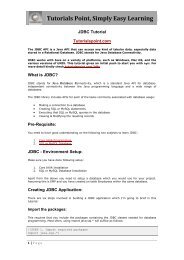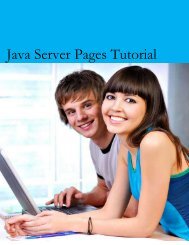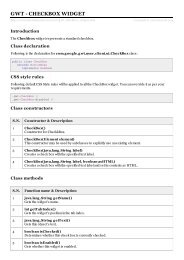Download Scala Tutorial (PDF Version) - Tutorials Point
Download Scala Tutorial (PDF Version) - Tutorials Point
Download Scala Tutorial (PDF Version) - Tutorials Point
Create successful ePaper yourself
Turn your PDF publications into a flip-book with our unique Google optimized e-Paper software.
When the above code is compiled and executed, it produces the following result:<br />
C:/>scalac Test.scala<br />
C:/>scala Test<br />
Value of a : 7<br />
Value of b : 5<br />
C:/><br />
Function with Variable Arguments<br />
<strong>Scala</strong> allows you to indicate that the last parameter to a function may be repeated. This allows clients to pass<br />
variable length argument lists to the function. Following is a simple example to show the concept.<br />
object Test {<br />
def main(args: Array[String]) {<br />
printStrings("Hello", "<strong>Scala</strong>", "Python");<br />
}<br />
def printStrings( args:String* ) = {<br />
var i : Int = 0;<br />
for( arg scalac Test.scala<br />
C:/>scala Test<br />
Arg value[0] = Hello<br />
Arg value[1] = <strong>Scala</strong><br />
Arg value[2] = Python<br />
C:/><br />
Here, the type of args inside the printStrings function, which is declared as type "String*" is actually Array[String].<br />
Recursive Functions<br />
Recursion plays a big role in pure functional programming and <strong>Scala</strong> supports recursion functions very well.<br />
Recursion means a function can call itself repeatedly. Following is a good example of recursion where we calculate<br />
factorials of the passed number:<br />
object Test {<br />
def main(args: Array[String]) {<br />
for (i



